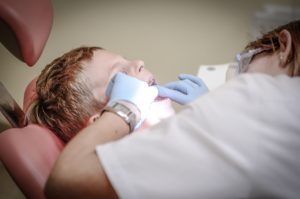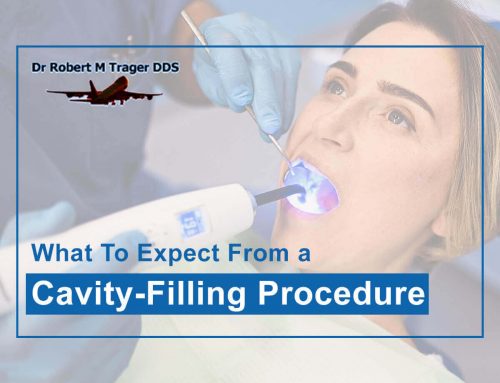
Of course, there is another concern that springs to mind – how much is the needle going to hurt when the dentist puts the syringe full of Novocaine into my gums? Dentists are very skilled at being able to insert the needle quickly and emptying the contents before it becomes uncomfortable.
So, while you’re waiting for the effects to sink in, you can learn what Novocaine is and what exactly it does.
Before The Injection
Novocaine, which dentists often refer to as Procaine, is an anesthetic that is designed to block feelings of pain. Before injecting it, your dentist will make sure that it is absolutely safe for you – they will ensure that you do not have liver problems, blood clotting issues, any heart issues or conditions like myasthenia gravis. Also, pregnant women should talk with their doctor about whether it’s safe or not.
There are other things that your dentist will check – like are you taking blood thinners or medication for high blood pressure? They have a list of medications that can have adverse interactions with Novocaine, and will adjust accordingly if that is indeed the case.
The Application
There are other things that dentists offer – they can range from “laughing gas” to twilight sedation for more extensive oral surgery. Sometimes they offer topical numbing agents for things like dental cleanings. But when it comes to things like tooth extraction or dental fillings, Novocaine is the most popular drug of choice to numb the area.
Once the dentist has inserted the syringe and applied the Novocaine, the next thing is to wait for the area to grow numb. You will feel the gyms become numb along with the area that is being worked on. The dentist will apply different doses for however long it is needed. You may regain feeling in as short as a few minutes or as long as several hours. This way, the dentist can work on what he or she needs to without being worried about your feeling pain.
Are There Side Effects?
Aside from the possibility of wearing food on your face after the procedure – think ice cream or yogurt – due to the numbness, there are relatively few side effects. Your dentist may look out for things like swelling or possible difficulties breathing due to allergies or anaphylactic shock. People tend to just feel pain for a while at the site where the dentist injected the Novocaine. If you have a known cardiac condition, you need to have your doctor or cardiologist give clearance first before your procedure.
Of course, if you find that your symptoms have worsened since the application of Novocaine, do not hesitate to contact your dentist – but if there are breathing problems, then you need to seek immediate medical help. This is rare, but you need to be aware of it.
Over the decades, Novocaine has been used millions of times and is considered one of the safest anesthetics for dental work. It’s effective and keeps any pain to a minimum or even renders it non-existent during the procedure. There may be some delayed pain afterwards, but it should be short-lived and can be managed with a painkiller like Tylenol.
Talk with your dentist about any questions or concerns that you might have about Novocaine. There are other options that were listed here that can make your dental experience go as smoothly as possible.
Dr. Robert Trager is highly experienced with all kinds of anesthetics and can ensure that you will have a smooth procedure with Novocaine or any other kind of drug. Give him a call today to make an appointment and learn what he can do for you: 718-656-4747.
Published By:
Dr. Robert M. Trager
JFK Airport
Building 14 West Wing,
Jamaica, NY 11430
Phone: 718-656-4747
Website: https://jfk-lga-dentist.com






Leave A Comment
You must be logged in to post a comment.